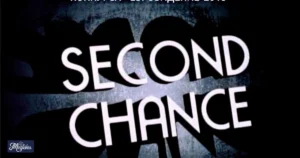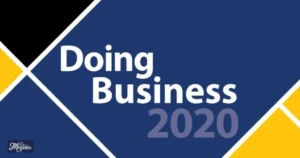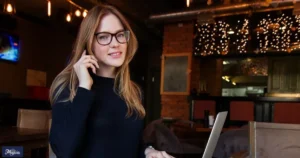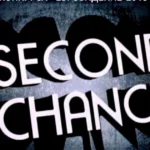“The unique and fun ways to say ‘See you tomorrow’! Change up your daily farewells with these creative alternatives.”
Saying “See you tomorrow” is part of our everyday vocabulary when we say goodbye to friends, colleagues, or family members. While this is a perfectly acceptable phrase, it can become repetitive if used all the time. Sometimes, switching up our language not only adds a fresh twist to our conversations but can also help us sound more engaging and thoughtful. Whether you’re looking for casual, formal, or playful alternatives, this list has something for every occasion.
Perhaps you’re someone like Alex, who feels like “See you tomorrow” doesn’t quite capture the feeling they want to express when parting ways. Or maybe you’re trying to be more creative with your language in social media posts or in professional emails. In any case, finding different ways to say goodbye can make your interactions feel more dynamic and meaningful. So, if you’re ready to spice up your goodbyes, keep reading.
In this article, we’ll introduce you to 35 different ways to say “See you tomorrow.” Each alternative will come with a scenario and a brief explanation of when to use it, as well as an additional tip to help you adapt your language to various situations. By the end of this blog post, you’ll have a range of new phrases to try out with your friends, coworkers, and family. Let’s dive in and explore these fun alternatives!
35 Other Ways to Say See You Tomorrow
1. Catch you later
Scenario: Saying goodbye after a casual meeting with a friend.
Explanation: A laid-back, informal farewell. It suggests you’ll see the person soon, but doesn’t specify when.
Additional Tip: Best for informal settings or close friends. Avoid it in formal work environments.
2. See you then
Scenario: Leaving after a scheduled meeting or appointment.
Explanation: Simple and direct. It conveys that you will meet at a specific time or event the next day.
Additional Tip: Perfect for work meetings or confirming plans for the next day.
3. Talk to you tomorrow
Scenario: Wrapping up a phone or video call with a colleague or friend.
Explanation: Indicates that the conversation will continue tomorrow. This can apply to both work and personal calls.
Additional Tip: Good for professional settings, especially in remote work environments.
4. Catch you on the flip side
Scenario: Leaving a fun or casual gathering with friends.
Explanation: A playful and friendly expression, often used informally to suggest that you’ll see someone soon.
Additional Tip: Use with close friends or colleagues in a relaxed atmosphere.
5. Until then
Scenario: Saying goodbye after agreeing to meet tomorrow.
Explanation: A short and efficient phrase, implying you’ll see the person in the near future.
Additional Tip: Works well in both formal and casual situations.
6. See you in the morning
Scenario: Parting ways in the evening, with plans to meet early tomorrow.
Explanation: Time-specific and appropriate when the next meeting is in the morning.
Additional Tip: Use when you have a specific time set for tomorrow, such as a morning meeting or coffee.
7. Looking forward to tomorrow
Scenario: After making plans for the next day, expressing enthusiasm.
Explanation: A warm and positive way to convey excitement about meeting again tomorrow.
Additional Tip: Use this phrase when you want to show anticipation for the next encounter.
8. I’ll see you soon
Scenario: Saying goodbye after a social gathering or work event.
Explanation: Implies that you’ll see the person again shortly, typically used for casual situations.
Additional Tip: A versatile phrase for both informal and slightly formal situations.
9. I’ll catch up with you tomorrow
Scenario: Wrapping up a conversation with a colleague, stating you’ll reconnect tomorrow.
Explanation: Indicates you will discuss something further the next day.
Additional Tip: Best for professional settings when you need to follow up on something.
10. Can’t wait to see you tomorrow
Scenario: Leaving a close friend or family member.
Explanation: Enthusiastic and excited, it shows your eagerness to meet again.
Additional Tip: Use it when you’re excited about the next day’s event or meeting.
11. Until tomorrow
Scenario: After confirming plans for the next day.
Explanation: Simple and neutral. It’s perfect for both casual and formal farewells.
Additional Tip: It’s short, sweet, and works well in both professional and personal contexts.
12. See you bright and early
Scenario: Saying goodbye after a late meeting, with plans to meet in the morning.
Explanation: A cheerful way of saying you’ll see the person in the morning, often used when there’s an early start.
Additional Tip: This phrase can sound warm and positive, perfect for both work and casual meetings.
13. I’ll be seeing you
Scenario: Saying goodbye after a casual or planned event, with an emphasis on seeing the person again soon.
Explanation: Slightly old-fashioned, but friendly and sincere.
Additional Tip: Use when you feel the need to make your farewell sound warm and thoughtful.
14. I’ll see you around
Scenario: Leaving a social event or workplace.
Explanation: Less formal than “See you tomorrow,” it suggests you’ll run into the person at some point tomorrow.
Additional Tip: Ideal for informal contexts where you don’t know exactly when you’ll meet.
15. Take care until tomorrow
Scenario: Parting ways with a colleague or friend, wishing them well.
Explanation: A caring and considerate phrase that adds warmth to the goodbye.
Additional Tip: Works well in personal or semi-professional interactions.
16. Looking forward to catching up tomorrow
Scenario: Wrapping up a conversation with a coworker or friend, stating your eagerness for the next day.
Explanation: Signals that you’re excited to resume the conversation or interaction the following day.
Additional Tip: Use when you want to show enthusiasm, especially in a work context.
17. I’ll see you when I see you
Scenario: Informal departure from a friend or colleague.
Explanation: This phrase has a relaxed, carefree tone. It’s often used when you don’t know the exact time of the next meeting but expect to see the person soon.
Additional Tip: Best for informal settings or with people you’re comfortable with.
18. Let’s do this again tomorrow
Scenario: After having a great time or completing a task, saying you’ll do it again tomorrow.
Explanation: A fun and enthusiastic way to say you’ll meet again.
Additional Tip: Use when you’re excited about an activity or event that will continue tomorrow.
19. See you later alligator
Scenario: A playful, fun farewell with close friends or family.
Explanation: A rhyming, lighthearted way to say goodbye.
Additional Tip: Use this in casual settings where you can be playful and fun.
20. Peace out
Scenario: A laid-back, informal farewell, often among younger people.
Explanation: This phrase suggests a relaxed, nonchalant goodbye.
Additional Tip: Best for casual conversations and with close friends or peers.
21. I’ll see you on the morrow
Scenario: After a formal meeting or gathering, parting ways for the next day.
Explanation: An old-fashioned, poetic way of saying “see you tomorrow.”
Additional Tip: Use in formal or historic settings for a more sophisticated vibe.
22. See you in a bit
Scenario: Saying goodbye when you’ll see the person again soon.
Explanation: It suggests that you will meet again in the near future, often in the same day or the following day.
Additional Tip: Use when you don’t know the exact time but expect to reconnect soon.
23. Stay safe until tomorrow
Scenario: A caring farewell, especially when you know the person is traveling or going somewhere.
Explanation: Implies that you hope the person stays safe until you meet again tomorrow.
Additional Tip: This phrase adds a touch of concern and warmth, making it ideal for close relationships.
24. Have a good night, see you tomorrow
Scenario: A friendly way to say goodbye at the end of the day, with plans to meet the next day.
Explanation: It conveys care and consideration while also implying that you’ll meet soon.
Additional Tip: Perfect for saying goodbye after work or a casual meeting in the evening.
25. I’ll be there tomorrow
Scenario: Saying goodbye after making plans for tomorrow.
Explanation: It’s a confident, affirmative way to let someone know you’ll see them the next day.
Additional Tip: This phrase works well when you’ve already confirmed the plan and just need a quick reminder.
Other Ways to Say Special Needs
26. Until tomorrow, my friend
Scenario: A warm and friendly farewell to someone you’re fond of.
Explanation: Adds a personal and affectionate touch, especially when speaking to close friends.
Additional Tip: It’s great for informal settings when you want to sound sincere and affectionate.
27. I’ll catch you tomorrow

Scenario: After scheduling plans for the next day.
Explanation: Casual and confident, it shows that you’ll see the person again tomorrow.
Additional Tip: A versatile phrase that can be used in both personal and professional contexts.
28. See you at the usual time
Scenario: When you meet regularly at the same time each day.
Explanation: It’s ideal when you have a routine and meet up regularly, making it a predictable and comfortable phrase to use.
Additional Tip: Use when you have a set schedule with the person, like a regular work meeting or recurring event.
29. I’ll see you tomorrow bright and early
Scenario: After confirming plans for an early meeting.
Explanation: This phrase is upbeat and suggests that you’ll meet at an early time tomorrow.
Additional Tip: Great for work settings or if you’re meeting first thing in the morning.
30. Looking forward to seeing you soon
Scenario: After confirming plans to meet the next day.
Explanation: This phrase conveys positivity and eagerness for the next encounter.
Additional Tip: It’s an ideal phrase when you’re excited or enthusiastic about the upcoming meeting.
31. Same time tomorrow
Scenario: Confirming the same meeting time for the next day.
Explanation: It’s a straightforward, no-nonsense way of saying you’ll see the person again at the same time tomorrow.
Additional Tip: Use when you’ve already agreed upon a time and just want to reiterate the plan.
32. Sleep well, see you tomorrow
Scenario: Saying goodbye to someone in the evening, with plans for the next day.
Explanation: Adds a caring, thoughtful element, especially when you’re parting ways late in the day.
Additional Tip: Works well with family members, close friends, or even colleagues after a long day.
33. See you in the a.m.
Scenario: A quick, informal farewell when you plan to meet the next morning.
Explanation: Casual and quick, implying you’ll see them early in the morning.
Additional Tip: Best suited for friends or colleagues you’re on familiar terms with.
34. I’ll be back tomorrow
Scenario: After finishing a task, with plans to continue or meet tomorrow.
Explanation: It’s a clear statement indicating that you’ll return or meet the person the next day.
Additional Tip: This is great for professional settings, especially when referring to returning to work or a specific task.
35. Same place, same time tomorrow
Scenario: When you’re meeting regularly at the same place and time.
Explanation: A simple, easy way to confirm regular plans for the next day.
Additional Tip: Perfect for groups or teams that have regular, scheduled meetings.
Pros and Cons Pros
- Variety: Using different phrases keeps your conversations fresh and engaging.
- Personalization: Some of these alternatives, such as “Looking forward to tomorrow,” add a personal touch, showing that you’re eager to meet again.
- Appropriateness: You can adjust your goodbye depending on the context (work, casual, or family).
Cons
- Overuse of Playful Phrases: Using too many casual or playful phrases might seem out of place in formal settings.
- Misinterpretation: Some people may misinterpret phrases like “Catch you on the flip side” if they are not familiar with it, especially in professional contexts.
Conclusion
Mixing up the way you say “See you tomorrow” can add flair to your conversations and help you better connect with others. Whether you’re using phrases like “Talk to you tomorrow” in professional emails or “Catch you on the flip side” with friends, these alternatives show that you care about how you communicate.
Remember to choose the right phrase based on the situation, and don’t be afraid to experiment with your language. With these 35 creative options, you’ll never be stuck for a goodbye again!

Hi, I’m Lauren Reynolds: I bring creativity to English lessons, mixing fun with learning. My goal is to inspire students to explore and enjoy the language.










